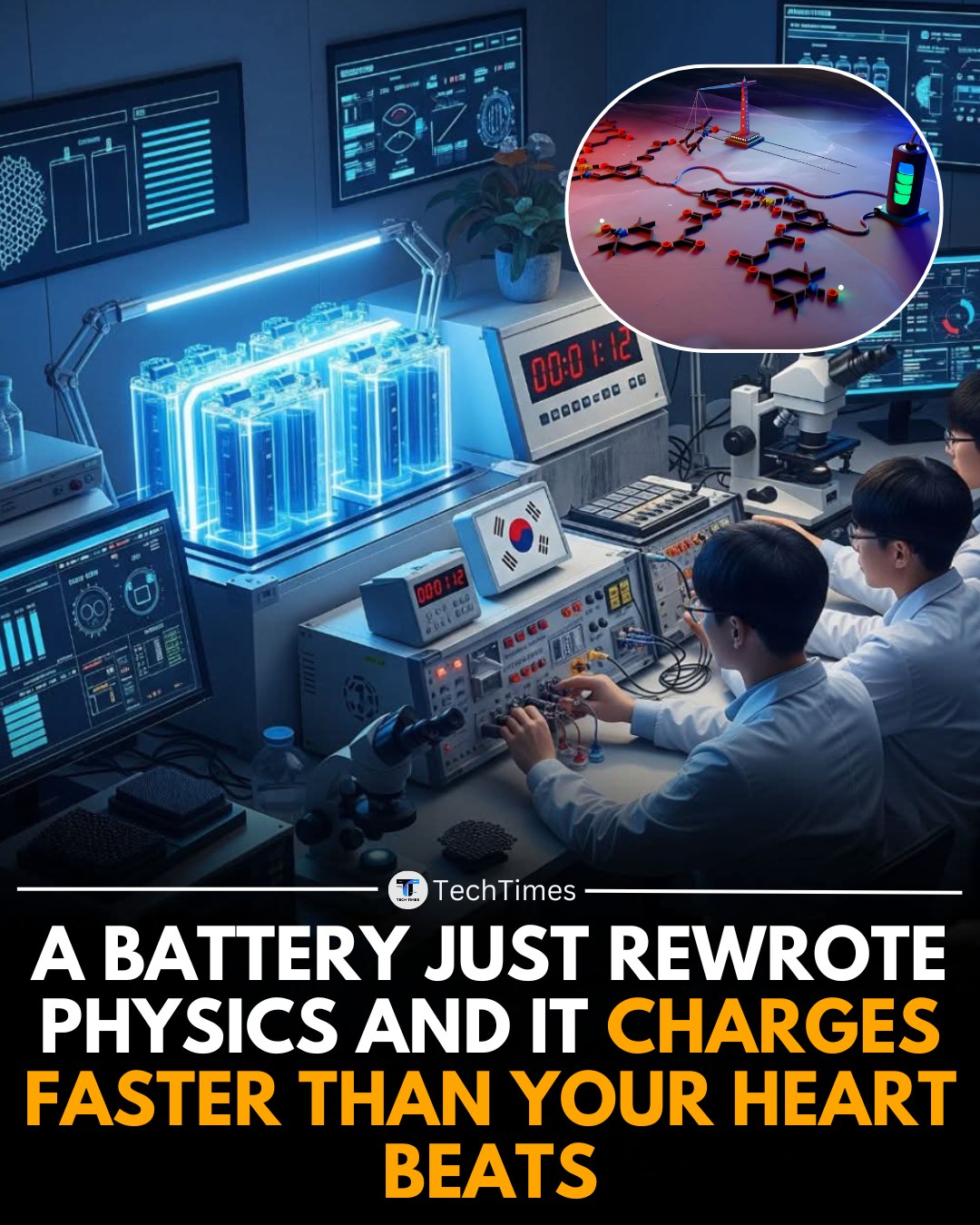South Korean researchers have developed a revolutionary battery that can charge in under a second, potentially reshaping the future of energy storage. The battery uses quantum tunneling effects and ultra-fast ion transport mechanisms, allowing it to fully recharge in less time than a single heartbeat.
This breakthrough defies traditional battery design by using novel nano-layered materials, dramatically increasing electron mobility. It’s not just about speed—the battery maintains high capacity and long cycle life, making it viable for real-world applications from EVs to emergency medical tech. If commercialized, this innovation could eliminate waiting times and redefine what we expect from energy systems.
#BatteryInnovation #QuantumTech #FutureOfEnergy #KoreanScience #FastChargingTech
This breakthrough defies traditional battery design by using novel nano-layered materials, dramatically increasing electron mobility. It’s not just about speed—the battery maintains high capacity and long cycle life, making it viable for real-world applications from EVs to emergency medical tech. If commercialized, this innovation could eliminate waiting times and redefine what we expect from energy systems.
#BatteryInnovation #QuantumTech #FutureOfEnergy #KoreanScience #FastChargingTech
South Korean researchers have developed a revolutionary battery that can charge in under a second, potentially reshaping the future of energy storage. The battery uses quantum tunneling effects and ultra-fast ion transport mechanisms, allowing it to fully recharge in less time than a single heartbeat.
This breakthrough defies traditional battery design by using novel nano-layered materials, dramatically increasing electron mobility. It’s not just about speed—the battery maintains high capacity and long cycle life, making it viable for real-world applications from EVs to emergency medical tech. If commercialized, this innovation could eliminate waiting times and redefine what we expect from energy systems.
#BatteryInnovation #QuantumTech #FutureOfEnergy #KoreanScience #FastChargingTech






